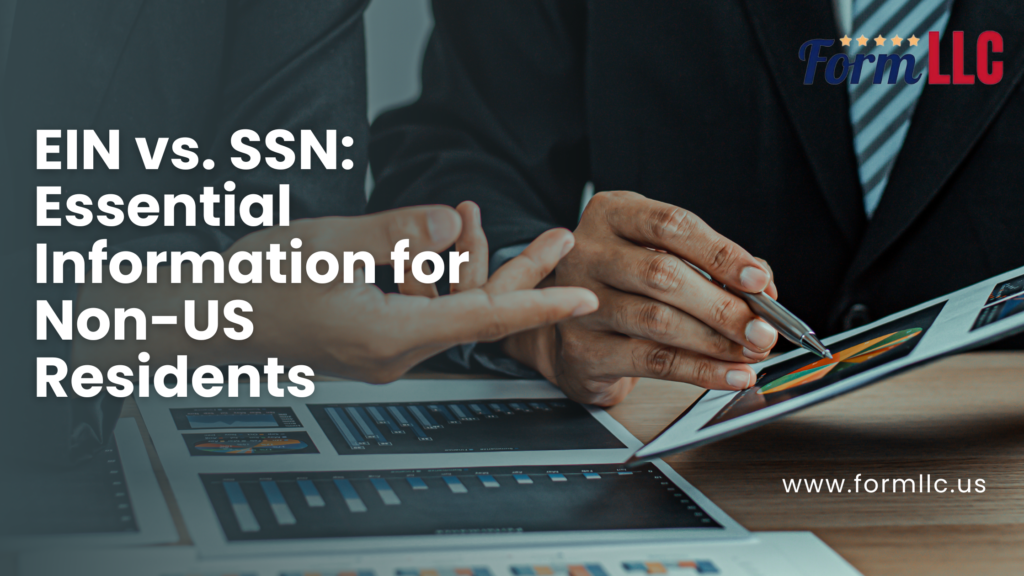
When establishing a business or managing financial affairs in the United States, non-US residents frequently face two important identification numbers: the EIN (Employer Identification Number) and the SSN (Social Security Number). Although both are composed of nine digits, they have distinctly different functions, particularly for global entrepreneurs aiming to do business in the US. This is a guide to comprehending each one and recognizing when non-US residents may require them.
What does SSN stand for?
An SSN, or Social Security Number, is mainly intended for US citizens, permanent residents, and certain temporary workers. The Social Security Number (SSN), provided by the Social Security Administration (SSA), is utilized to monitor individual earnings for tax reasons, access government assistance, and work legally in the United States.
For individuals residing outside the US, it is crucial to understand that typically you cannot obtain an SSN unless you have permission to work in the US. Because the SSN is meant to identify people instead of companies, it is usually not applicable for non-residents creating an LLC or engaging in business-only operations in the US.
What does EIN stand for?
An EIN, or Employer Identification Number, is a nine-digit code provided by the IRS to recognize a business for tax and legal matters. Non-US citizens frequently require an EIN when they establish a US-based LLC, set up a US bank account for their enterprise, or manage tax reporting obligations for their business.
The EIN acts as a “business Social Security Number” and provides a simple method for non-residents to handle business finances apart from personal issues. An EIN can be acquired without an SSN, and it is available for free through the IRS. For individuals living outside the US, obtaining an EIN is crucial for maintaining legal compliance of your business in the US and for accessing important financial services.
Essential Distinctions Between EIN and SSN for Non-US Residents
Objective: The SSN distinguishes persons, whereas the EIN distinguishes companies. Non-US residents establishing a business require only an EIN and not an SSN.
Eligibility: An SSN is restricted to US citizens and specific resident workers, while an EIN is accessible to all business entities, including those owned by non-US residents.
Privacy: The EIN enables non-residents to manage US business requirements without needing an SSN, safeguarding personal data by circumventing the use of SSNs in business dealings.
For individuals outside the US, an EIN is the primary identifier for establishing and running a business in the US. The SSN, on the other hand, is usually not required unless the person intends to work personally in the US. By obtaining an EIN, non-residents can meet tax obligations, establish business accounts, and conduct operations in the US without requiring an SSN.